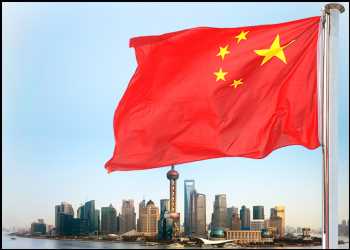China set a moderate growth target for this year which would require no strong stimulus to achieve given the rebound the economy gained from the relaxation of the Covid pandemic restrictions.
Outgoing Premier Li Keqiang announced a growth target of around 5.0 percent in 2023 at the annual legislative session on Sunday as officials turn their focus on other areas like technology and infrastructure than mere economic indicators.
Weak external demand and property downturn continue to pose challenges to the Chinese economy. The government has also limited scope to provide stimulus in the face of the large fiscal deficit incurred last year.
Li warned about the challenges the economy confronts from the external environment amid sanctions and restrictions imposed by the US government that limit the access to technology.
The government is not overly optimistic and does not spend too much to boost growth, ING economist Iris Pang said. The government focuses more on longer-term growth challenges.
“In our view, achieving these targets would not be very challenging,” the economist added.
“The economic recovery is nascent and the government would need to ensure sufficient stimulus to shore up both consumer and investor confidence,” Commerzbank’s Senior Economist Tommy Wu said.
The government work report delivered to the National People’s Congress showed that Beijing will allocate special purpose bond issuance of CNY 3.8 trillion to local governments to fund infrastructure projects.
The fiscal deficit is projected to reach 3 percent of GDP in 2023 compared to 2.8 percent in 2022.
Beijing had missed its growth target of ‘around 5.5 percent’ last year by a bigger margin as the economy was strictly under pandemic related restrictions.
The second largest economy in the world grew only 3.0 percent in 2022, marking the weakest expansion in decades.
The International Monetary Fund has projected China’s GDP growth to rise to 5.2 percent in 2023 that reflects the rapidly improving mobility. Growth is however expected to weaken to 4.5 percent next year before settling at below 4 percent over the medium term.
Li said it is important to give priority to ensuring stable growth, employment and prices this year. The government targets to keep consumer price inflation at around 3.0 percent.
The government aims to add around 12 million urban jobs and the surveyed unemployment rate is seen at around 5.5 percent.
Li told the national legislature that the defense spending would be increased by 7.2 percent. This was more or less unchanged from the 2022 defense spending growth.
Source: Read Full Article

